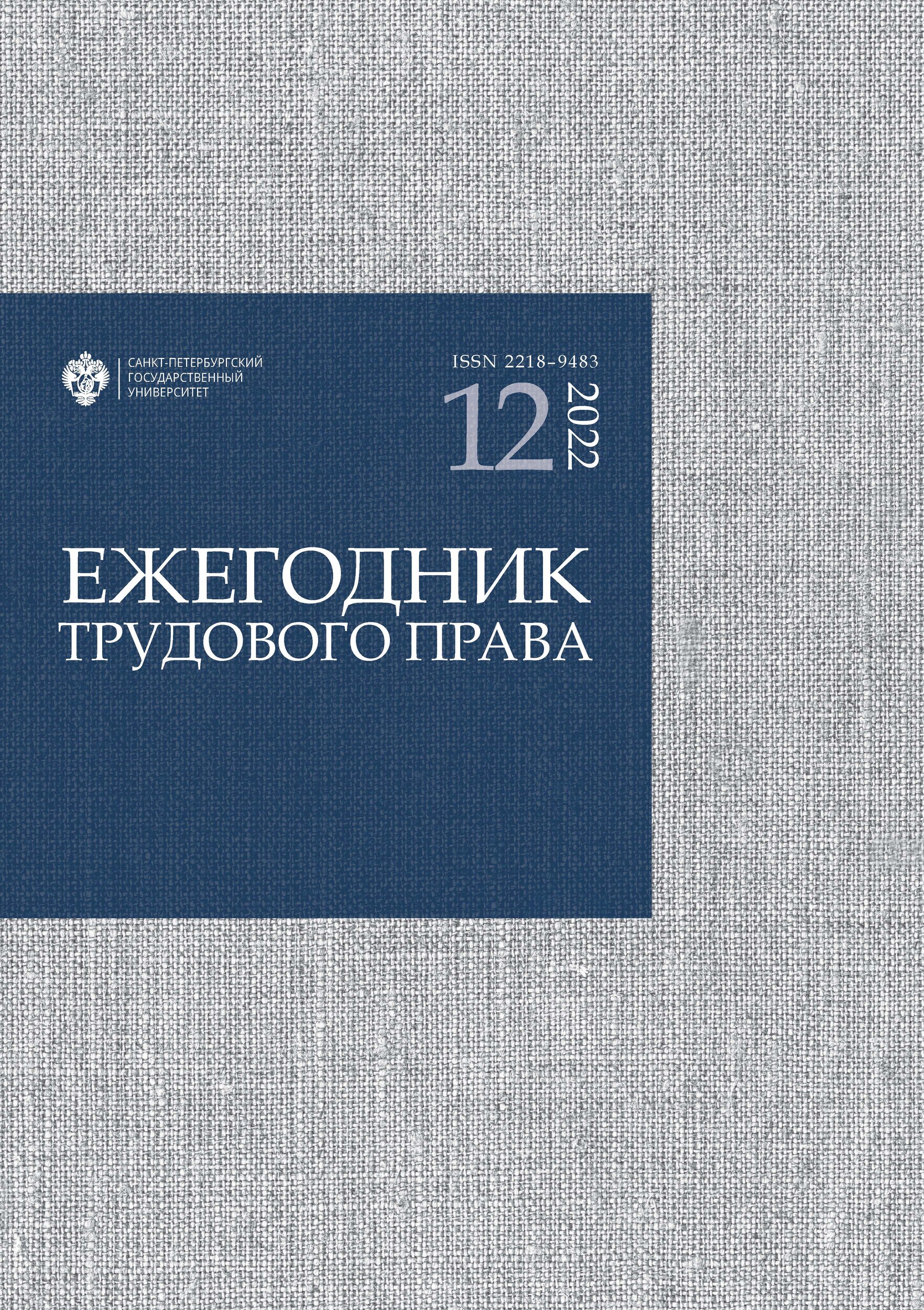Brazilian labour court decisions on privacy rights in the technology era
DOI:
https://doi.org/10.21638/spbu32.2022.121Аннотация
The workplace was considerably changed by technological and innovative advances. Some extrapolations of such change, however, occur when the employer monitors landlines and mobile phones, e-mails and instant messaging applications, internet use, and use and behaviour in social networks. Brazilian literature in this area has been developing throughout the years, but it is still insufficient and case law is not uniform, causing legal uncertainty that usually harms the most vulnerable party: the worker. This qualitative empirical study therefore seeks to understand those decision that to maintain and do not maintain (and why) the dismissal with cause in cases involving the use of information and communication technologies. A legal search in the jurisprudence of the Regional Labour Court of the Second Region (Sгo Paulo, Brazil) was performed and decisions published until December 2019 were retrieved and confronted with the understanding provided for in instruments from the International Labor Organization related to the future of work and termination of employment. It seems information and communication technologies are still a recent matter when decisions from the abovementioned Court were analyzed and confronted with International Labor Organization’s instruments. This study understands that privacy and the use of information and communication technologies could be more discussed and incorporated into the Brazilian legislative agenda, so it generates policy development and discussion on the importance of protecting workers’ right to privacy.
Ключевые слова:
human rights, information and communication technologies, labor law
Скачивания
Библиографические ссылки
References
Burmann, Marcia Sanz. 2011. “A Concretização Da Privacidade Do Empregado No Ambiente de Trabalho.” Master’s thesis, Universidade de São Paulo.
Calonego, Fernanda Lopes. 2007. “Monitoramento de e-mails pelo empregador e a intimidade e privacidade do empregado.” Revista Jurídica Cesumar 7 (2): 579–606.
Corrêa, Ana Paula Lasmar, and Paulo Eduardo Vieira Oliveira. 2019. “A Esfera Privada Do Trabalhador e o Poder de Controle Do Empregador: Limites e Consequências.” Revista de Direito Do Trabalho e Processo Do Trabalho 1 (1): 150–164.
Freitas Júnior, Antonio Rodrigues. 2006. Direito Do Trabalho: Direitos Humanos. São Paulo: Editora BH.
Maranhão, Ney, Davi Barros Benevides and Marina Nogueira de Almeida. 2017. “Empresa panóptica: poder diretivo do empregador e direitos fundamentais do à privacidade e intimidade do empregado diante das novas formas de tecnologia.” Revista de Estudos Jurídicos UNESP 21 (34): 167–190.
Oliveira, Rafael Santos, Bruno Mello Correa Barros and Marília Nascimento Pereira. 2017. “The Right to Internet Privacy: Challenges for the Protection of Private Life and the Right to Be Forgotten.” Revista Da Faculdade de Direito Da UFMG 70: 561–594.
Rodrigues, Alexsandra Gato, and Clarissa Teresinha Lovatto Barros. 2015. “O uso das redes sociais pelo empregado: breve análise do confronto do direito fundamental de liberdade de expressão x poder diretivo do empregador.” Revista de Direitos Fundamentais nas Relações do Trabalho, Sociais e Empresariais 1: 5–23. Accessed February 16, 2022. https://indexlaw.org/index.php/revistadireitosfundamentais/article/view/963/958.
Silva, José Afonso da. 2000. Curso de Direito Constitucional Positivo. 17th ed. São Paulo: Malheiros.
Slomp Neto, Frederico, and Luiz Eduardo Gunther. 2020. “Limites da entrevista de candidatos a vagas de emprego sob a perspectiva dos princípios da intimidade e da privacidade.” Percurso 2 (33): 390–395. https://doi.org/10.21902/RevPercurso.2316-7521.v2i33.4393.
Vianna, Jaqueline Abreu. 2012. “O Trabalho Mediado Por TIC — Tecnologias de Informação e Comunicação — e Seus Efeitos Sobre o Trabalhador.” PhD diss., Belo Horizonte.
Warren, Samuel D., and Brandeis, Louis D. 1890. “The Right to Privacy.” Harvard Law Review 4 (5): 193–220.
Загрузки
Опубликован
Как цитировать
Выпуск
Раздел
Лицензия
Статьи журнала «Ежегодник трудового права» находятся в открытом доступе и распространяются в соответствии с условиями Лицензионного Договора с Санкт-Петербургским государственным университетом, который бесплатно предоставляет авторам неограниченное распространение и самостоятельное архивирование.




